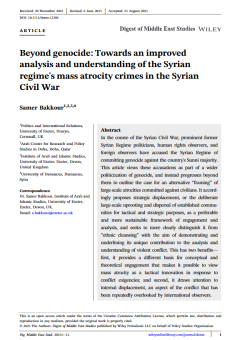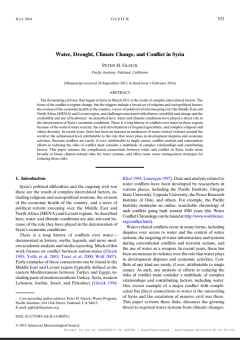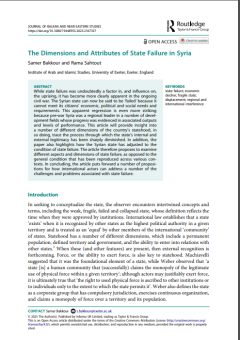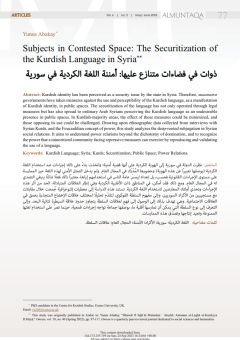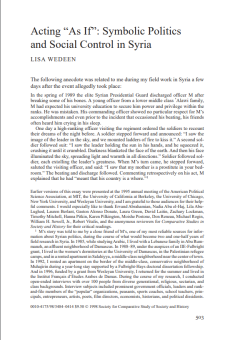In the course of the Syrian Civil War, prominent former Syrian Regime politicians, human rights observers, and foreign observers have accused the Syrian Regime of committing genocide against the country’s Sunni majority. This article views these accusations as part of a wider politicization of genocide, and instead progresses beyond them
The devastating civil war that began in Syria in March 2011 is the result of complex interrelated factors. The focus of the conflict is regime change, but the triggers include a broad set of religious and sociopolitical factors, the erosion of the economic health of the country, a wave of
While state failure was undoubtedly a factor in, and influence on, the uprising, it has become more clearly apparent in the ongoing civil war. The Syrian state can now be said to be ‘failed’ because it cannot meet its citizens’ economic, political and social needs and requirements. This apparent regression
Kurdish identity has been perceived as a security issue by the state in Syria. Therefore, successive governments have taken measures against the use and perceptibility of the Kurdish language, as a manifestation of Kurdish identity, in public spaces. The securitization of the language has not only operated through legal measures
One day a high-ranking officer visiting the regiment ordered the soldiers to recount their dreams of the night before. A soldier stepped forward and announced: “I saw the image of the leader in the sky, and we mounted ladders of fire to kiss it.” A second soldier followed suit: “I

